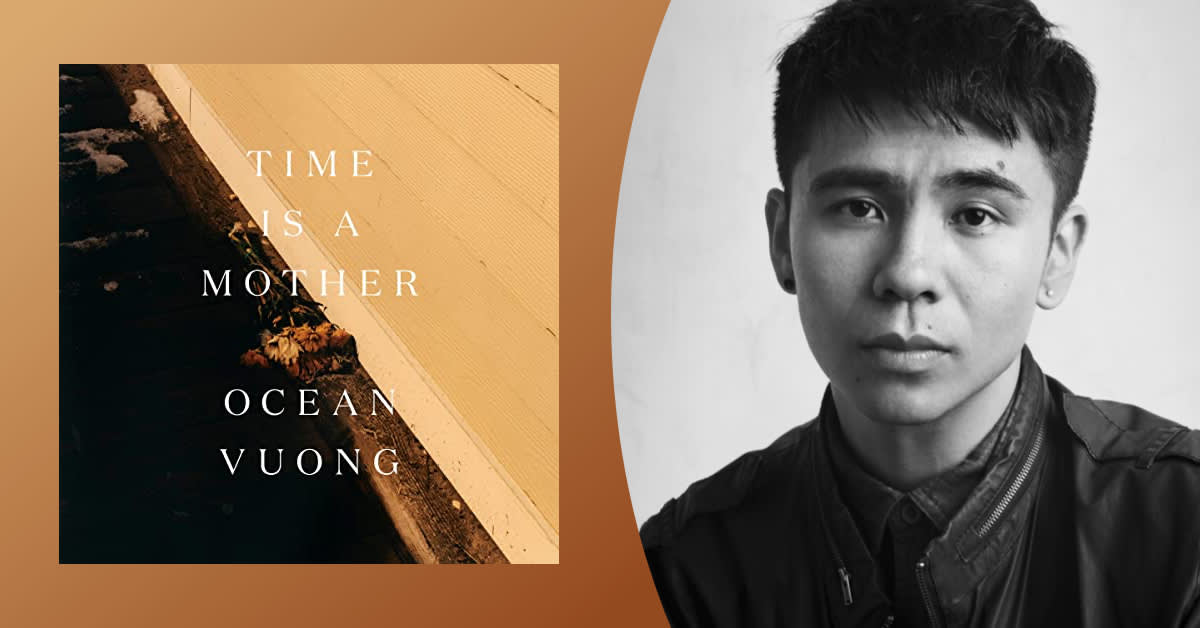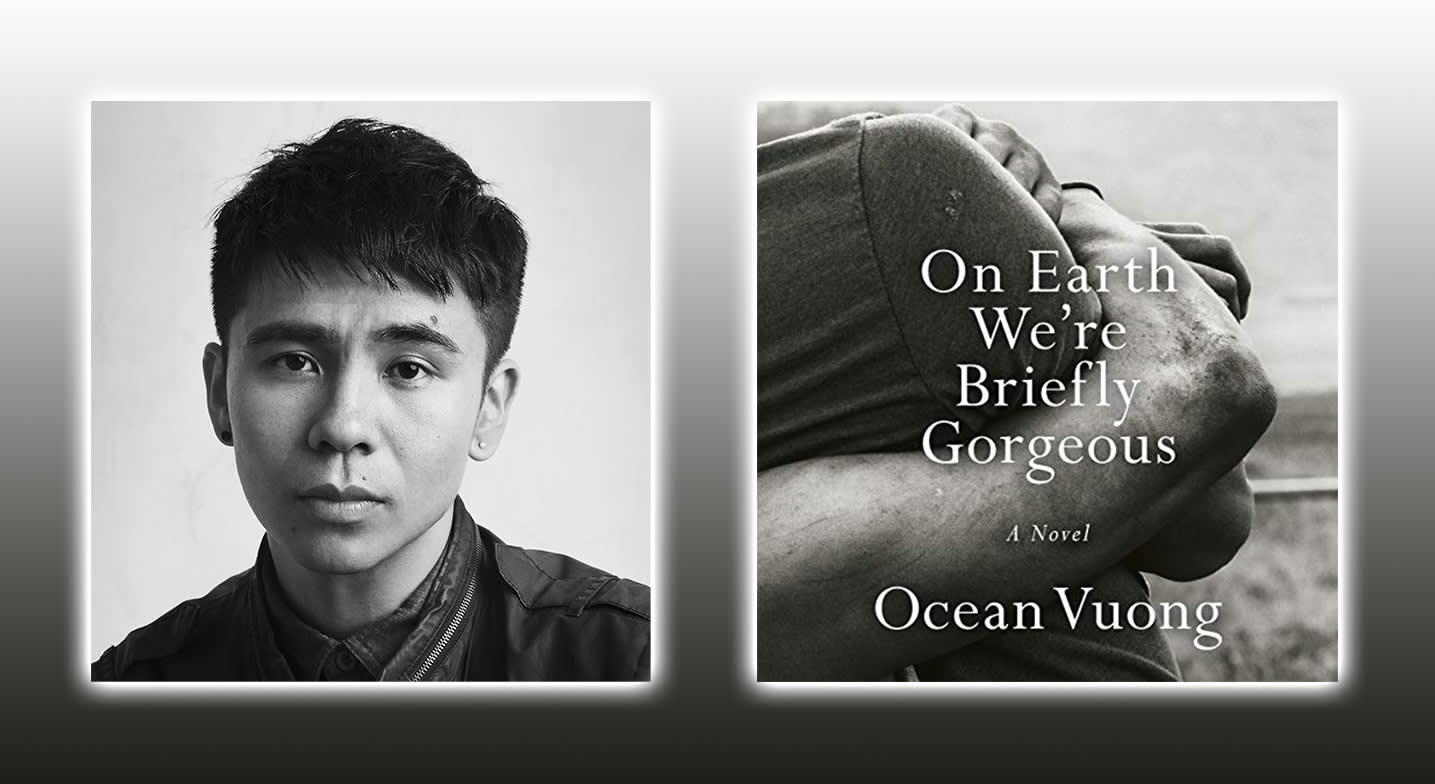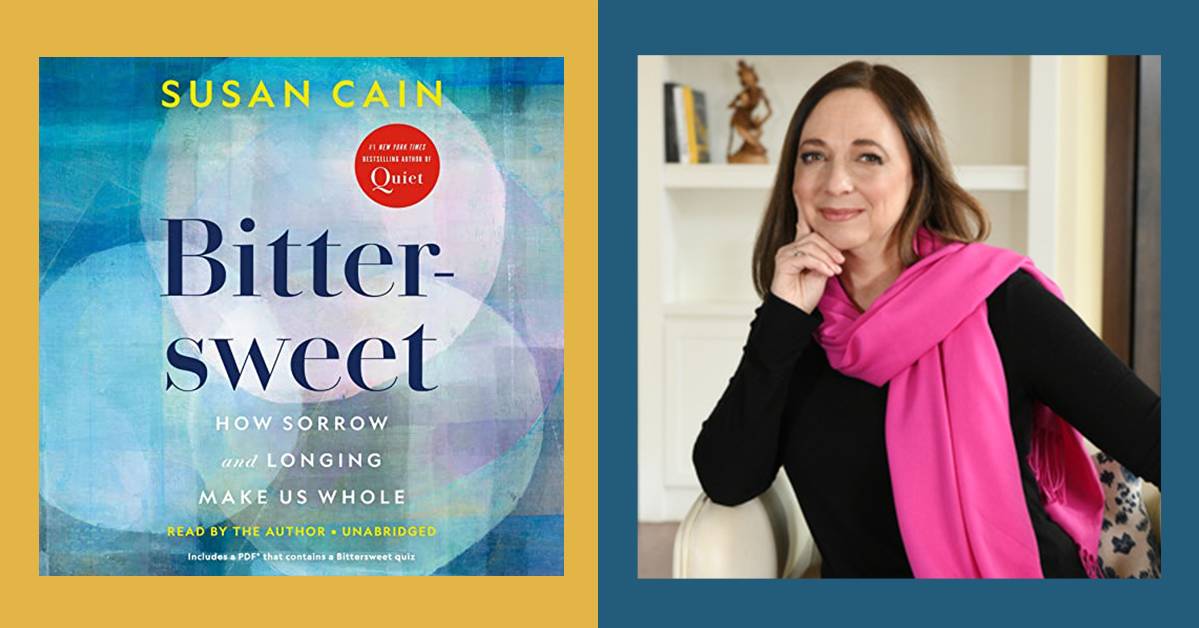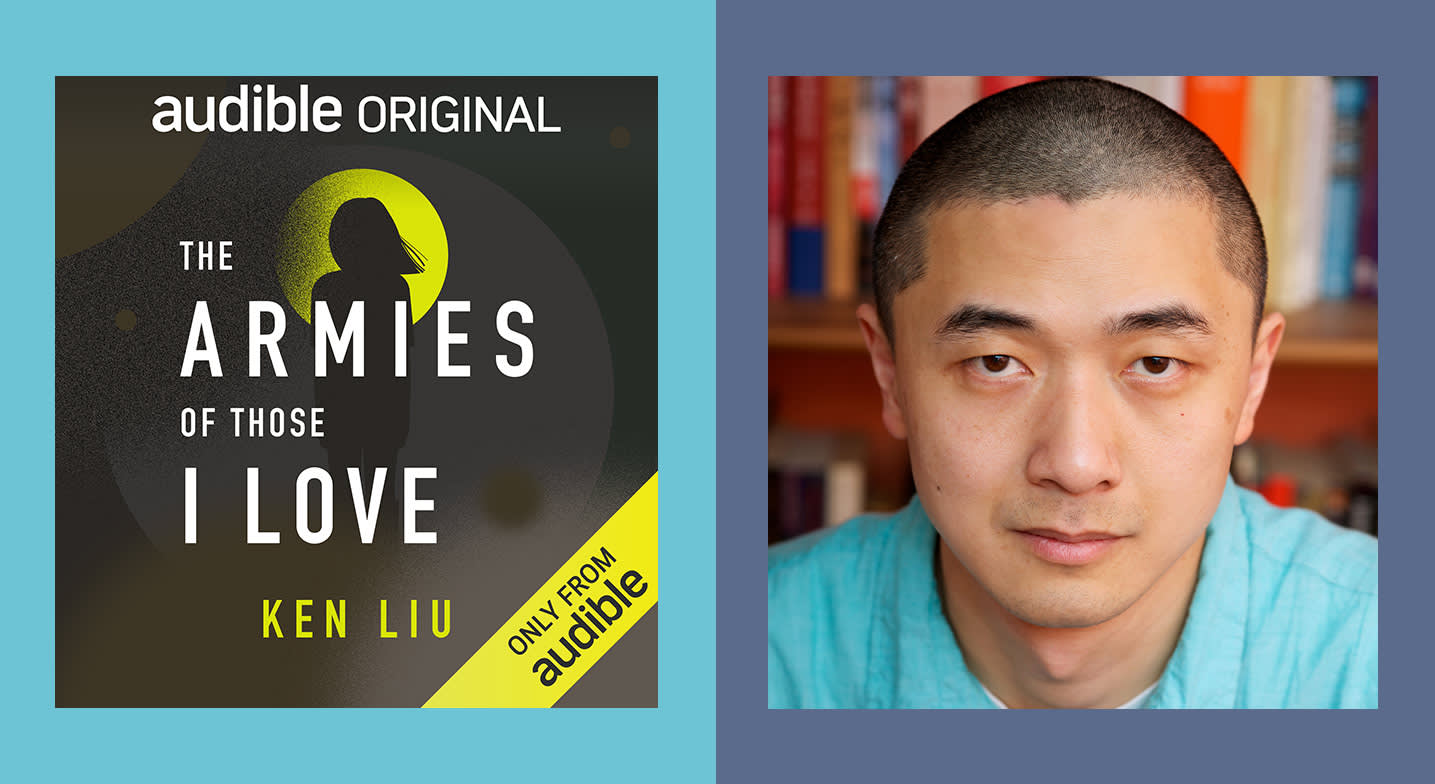Grief is an interesting word. We all understand the feeling, but in order for us to wrap our heads around it, the definition must be somewhat malleable. Grief can be whatever you need it to be. These days, it’s helpful for me to think of grief as a longing for the moments and experiences that could have been and all the things left unsaid. And over these past two years, I think we’ve all had something to grieve—the loss of loved ones, jobs, homes, our sense of connection to the world—and ironically enough, I think the thing that could return the feeling of connection we need is grief itself.
In a way, grief is a marker of time. There was this, and then there wasn’t this, but you’re still here, left with the fact that acceptance is the road to peace. When it’s a loss that hits as deeply as the loss of a parent, it can be hard to fathom the idea of a world without them in it. And if there’s one person who could put into words the magnitude of that seismic loss, it’s Ocean Vuong.
Both a novelist and a poet, Vuong has an unmatched ability to give language to the seemingly ineffable pangs that flood us on that journey to acceptance. His debut novel, On Earth We’re Briefly Gorgeous has been lauded for the beauty and lyricism of its prose. In his latest collection of poetry, Time Is a Mother, that beauty and lyricism take center stage as he navigates the loss of his mother and how to survive in a world where chaos always has the final say. To mark its release, I asked him about his own experiences with loss and what makes poetry such a poignant conduit for expressing grief.
Grief, which has always been a theme in your work, takes center stage in your new collection of poetry. Was there anything you were surprised to learn about yourself, or about life in general, throughout your grieving process?
I think the biggest surprise, and perhaps the saddest, was that losing my mother and the grief that ensued was somehow familiar—and I realized that I’ve spent most of my young adulthood grieving. And that it’s the most human thing we have, and perhaps even the most universal. I’m pretty skeptical of the universal—but when it comes to losing your mother, I think that’s the closest thing we have. In fact, it’s an interspecies phenomena. To be a mammal is to be born and to lose your mother. I somehow felt closer to the world, the people in it, after losing my mom. Of course, this is a small consolation, if you can even call it that, one I’d be happy to give back if I could hug my mother again, even just for seven seconds.
The process of grieving can bring up so many feelings that are ineffable. While there are many resources available on the subject, personally I find that only art can get at it in a way that feels true to being human. Did poetry feel like the only way to unpack it all and make your way through it?
I don’t think poetry is as cathartic as the culture often prescribes it to be. I mean, you write a poem, maybe even a “good” one, one that you’re proud of, but then you’re still depressed. Your mom is still gone and the world is on fire and you don’t have healthcare, etc. So I don’t think poetry is a way through anything—but rather a way to stand inside it. The poem is to me a “place” but also an “action.” We both embody the poem and also animate through the experience of reading, which binds us or tethers us to each other in ways that the material world doesn’t allow—and that’s a special thing. It’s a technology, perhaps our species’ most valuable and advanced kind.
Grieving the loss of your mother while living through the success and praise you received for your debut novel, On Earth We're Briefly Gorgeous, and, not long after, living through a pandemic—that's a lot to take on in such a short period of time. Did you find that the solitude brought on by the pandemic was helpful in terms of processing these experiences and writing this collection of poetry?
Yes, I’m an introvert who gets very easily over-stimulated. I’m literally a lightweight in every sense of the term, so space and quiet for reflection are always welcomed, including grieving, which is, in the end, such a private thing. No one can lose for you. You must only lose for yourself. And that takes a lot of space and room for error, madness, failure even, which the pandemic provided, albeit via horrifying circumstances. In a way, we’ve been collectively grieving as a planet, our failures suddenly made embarrassingly evident. But we’ve also been reaching toward art and making as a conductor of these energies, both the joy and vexedness. I’m told people are reading more, listening to more audiobooks during the pandemic, and that gives me some hope.
I think we’re all grieving in some way these days—from the millions of people lost to COVID to all the violence and brutality we just had to sit and watch throughout 2020 and 2021, and even the loss of what our lives were like before the pandemic and the things that have forever changed because of it. Were there any practices you’d be willing to share that helped you move along and be productive in the face of loss?
One of the most “productive” things you can do, I feel, whether you experience grief or not, is to allow yourself to not be “productive.” Capitalistic pressures mount in us so much shame and embarrassment in being ill, compromised, even experiencing hurt, that we immediately try to remedy these trying conditions through some triumph of productivity. But all this is a mirage—it’s a myth—and in the end, we suffer more from it. I think sitting still in whatever you’re feeling, letting it enter you and then leave you, which it always does, it must, like language enters and leaves us, is the best thing, the most forgiving thing. I don’t drive—I don’t know how—but I think sometimes it’s helpful to pull our metaphorical car over and just sit with our discomfort. Watch it like the truth it is, knowing it will transform into something else sooner or later. I think ultimately that’s what reading is too: being very still while another world moves inside you.



